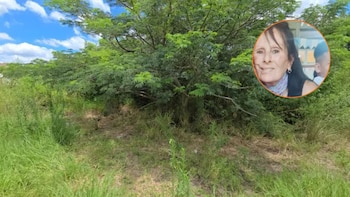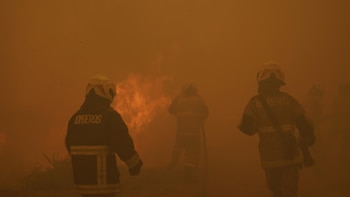
BEIJING — For the group in Beijing known as the “observers,” the Olympic Games is more like Olympic University.
They have many subjects to study and their final exam will not come until they host their own Summer or Winter Olympics in the future. They know they cannot fail.
The International Olympic Committee (IOC)-sponsored program, a part of the the Information, Knowledge and Games Learning (IKL) unit, is stretched across 19 days in Beijing with more than 50 activities including venue and site tours, expert panels and discussion forums.
“The ability to come and see and touch and feel is huge,” said Chris Payne, IOC associate director of IKL. “Taking the time out to learn a little bit before actually plunging into the delivery is really important.”

Milano-Cortina 2026 has 40 observers, while Paris 2024 sent 20. Brisbane 2032, which has more than 10 years to prepare, has three. The Gangwon 2024 Winter Youth Olympic Games also has three representatives.
LA28 declined an invitation to be part of the observers program and did not respond to emails from Around the Rings.
Payne said organizing committees can gain valuable knowledge no matter where they are in the planning process. “The closer they get to their own Games, the more they’re kind of pressure-testing their own plans through coming and seeing what the previous OCOG has done,” he said. “In the very early stages, it’s really about understanding the broader ecosystem so they can make the right procurement decisions, for example.”
New Olympic hosts don’t need to reinvent the wheel, though they may make their wheel a bit differently.
“The Games is a huge knowledge enterprise,” Payne said. “We’re not really making widgets as such. We’re trying to deliver a complex event that scales to significant size. We don’t want a copycat approach. We want people to be inventive, creative. So we try and plant these different seeds of knowledge along their journey that they can then grow in their own context and evolve to help them offer a solution that will work.”

Topics covered include: Look of the Games, airport and village operations, workforce training and operations, accreditation and uniforms overview, signage and way finding, bus and fleet operations, Olympic family services, technology, brand identity, medical services, overlay and site management, doping control, ceremonies, press operations, event experiences, athletes experience, victory ceremony and sustainability.
That’s a lot to take in.
The first structured sessions conducted by the IOC were in Atlanta in 1996, but Payne said the program “really took off” after Sydney 2000.
The IOC pays all expenses as part of the host city contract, Payne said, “because we know the Games is a knowledge enterprise. We pay a lot of attention to it. We invest in it.”
And they understand that all OCOGs are not cut from the same cloth, nor would they want them to be.
“We encounter an awful lot of cultural differences,” Payne said. “People like to learn in different ways. And so we have a very broad offer. We see what works and then we support them on their journey to help them become essentially a learning organization. Because unless the OCOG is a learning organization, they will compromise some of the deliveries they have to achieve.”
He said many organizational dynamics are the same whether it is a Summer or Winter Games.

“If we look at Paris,” Payne said, “they are coming with detailed questions to validate, to pressure-test some of their thinking and ideas about what they want to do. ‘Will this really work?’ etc. We see tons of innovations with Paris, which is quite exciting.”
For Brisbane, which has so many more years to prepare, he said the three senior officials from the Australian city “really begin to get under the skin of what the Games is. In their situation, it’s quite an interesting comparison with the previous delivery of the Commonwealth Games. The Olympics is different, but some of the specifics of summer multi-sport competition is quite similar. They come at it with quite a lot of experience, so they’re asking a lot of questions. I think for them it’s really about shaping their master plan in the very early years.”
And while Los Angeles did not want to be part of this observer program, Payne said “we are working actively with LA28.”
The IKL unit also hosts round-table or classroom sessions remotely at various times of the year. Payne said there is more demand to attend these sessions than the IOC has the ability to accommodate.
They also capture material from the program and make it available through an internal platform.
Of course, with so few spectators due to COVID-19 countermeasures, the observers didn’t get a chance to examine ingress and egress or other audience-specific issues.
“I think the fact that we’ve pulled it off, still managed to do a program with all the constraints and all of the pressure to limit access, limit movement, and with reduced numbers of people, is a testament to how seriously we take the knowledge piece,” Payne said.
Andrea Monti, communications director for Milano-Cortina 2026, said he was most impressed by “the complexity and how huge this machine is and how the IOC and BOCOG are managing this complexity.”
Monti added that he expects “a very different situation in Milan in four years. I expect or I hope the situation will be very different. But what I learned here is to deal with an emergency and to make an emergency into something normal and manageable.”
Payne trusts the cities to make the best use of the knowledge the IOC helps provide.
“Each OCOG finds its own way,” Payne said.
Últimas Noticias
Sinner-Alcaraz, the duel that came to succeed the three phenomenons
Beyond the final result, Roland Garros left the feeling that the Italian and the Spaniard will shape the great duel that came to help us through the duel for the end of the Federer-Nadal-Djokovic era.
Table tennis: Brazil’s Bruna Costa Alexandre will be Olympic and Paralympic in Paris 2024
She is the third in her sport and the seventh athlete to achieve it in the same edition; in Santiago 2023 she was the first athlete with disabilities to compete at the Pan American level and won a medal.

Rugby 7s: the best player of 2023 would only play the medal match in Paris
Argentinian Rodrigo Isgró received a five-game suspension for an indiscipline in the circuit’s decisive clash that would exclude him until the final or the bronze match; the Federation will seek to make the appeal successful.

Rhonex Kipruto, owner of the world record for the 10000 meters on the road, was suspended for six years
The Kenyan received the maximum sanction for irregularities in his biological passport and the Court considered that he was part of a system of “deliberate and sophisticated doping” to improve his performance. He will lose his record and the bronze medal at the Doha World Cup.

Katie Ledecky spoke about doping Chinese swimmers: “It’s difficult to go to Paris knowing that we’re going to compete with some of these athletes”
The American, a seven-time Olympic champion, referred to the case of the 23 positive controls before the Tokyo Games that were announced a few weeks ago and shook the swimming world. “I think our faith in some of the systems is at an all-time low,” he said.





